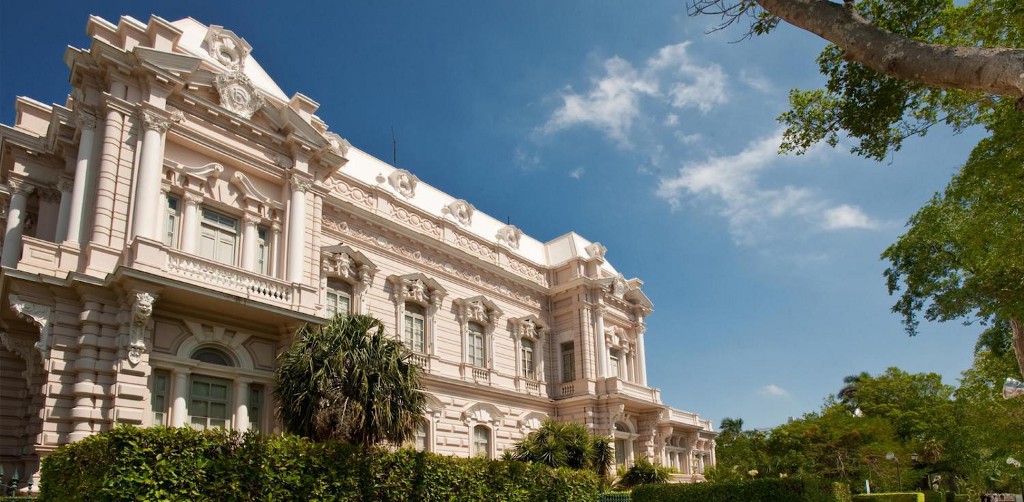Greetings, ImpactAlpha readers!
#Featured: ImpactAlpha Original
In Latin America, tech is driving impact and impact is driving tech. Can impact investing in countries like Mexico, Guatemala, Colombia, Chile, Peru, Argentina and Brazil fight inequality and boost social outcomes, perhaps even more systemically than traditional development efforts?
Investments in health, education, agriculture, energy and other high-impact sectors are pathways to the region’s next growth market: the emerging middle class. The bulk of the 565 million people in Latin America are now middle income. At this week’s Latin America Impact Investing Forum in Merida, Mexico, the question of just what is “impact” is high on the agenda.
Need and opportunity are converging to drive the growth of impact investing in the region. More than $10 billion in impact investing assets now sit in Latin America, according to the latest Global Impact Investing Network research. For traditional tech investors, investments into startups that attract talent and create jobs can drive “impact” in capital-starved cities and communities in Latin America, where venture capital investments in the first half of 2017 topped $475 million, almost double the same period a year earlier. Chinese investment capital is pouring in.
What is impact? The answer, as impact investing expands globally and in Latin America, will likely define whether current efforts really do reshape historically unbalanced economic systems. Read, “In Latin America, ‘impact’ high on the agenda as impact investing seeks scale,” by Dennis Price on ImpactAlpha.
At FLII? On Thursday, ImpactAlpha’s Jessica Pothering will host “Impact Flash Test,” a discussion on impact with SVX Mexico’s Laura Ortiz and IGNIA’s Fabrice Serfati.
In Latin America, tech is driving impact and impact is driving tech
#Dealflow: Follow the Money
MyVyllage raises $1.2 million for early childhood care and education.MyVyllage has developed a curriculum and trains educators to run early care centers out of their homes, then monitors all of the centers in its network. MyVyllage’s seed round was led by Better Ventures with backing from Acumen America, Gary Investments and several angel investors. In January, Wonderschool raised $2.1 million from Omidyar Network and others for a similar early childhood education venture.
Auravant raises $350,000 for precision agriculture tools. The Buenos Aires-based agtech startup develops agriculture software tools, includling its Zoom platform, which uses satellite imaging to help farmers monitor their fields and Plena, which helps measure crop fertilization. Nesst and Glocal backed the seed round. Auravant raised capital from NXTP Labs last year after participating in its accelerator program.
Incubator for Islamic social startups launches in Dubai. The Goodforce Labs incubator is a project of the Dubai Airport Freezone Authority (DAFZA) — which oversees Dubai’s tax-free international business licensing. The incubator aligns with a 2013 initiative by the Dubai government to diversify its economy while becoming a leader in the “Islamic economy,” which includes Islamic finance, halal foods and products, arts and culture among other areas. Goodforce Labs aims to select startups working in these areas with an ethical focus and help grow. The aim is to attract a larger share of global impact investing dollars, says Goodforce Lab Director Rafi-uddin Shikoh, who notes that while $22 billion was invested in impact-focused assets in 2017, very little of that money went to startups in the Middle East and North Africa. The incubator also wants to help social Islamic startups in expand internationally.
See all of ImpactAlpha’s recent #dealflow. Send deal tips and news to [email protected].
#Signals: Ahead of the Curve
Tech pundits start to take on the bugs in the market system. NewCo’s Shift Forum in San Francisco has become a place for policy and even political discussions that are outside the bounds of most tech conferences. This year’s conference was no exception as speakers took on the prevailing notion that the replacement of workers with automation is an inevitable outcome of technological progress. “The fundamental question is not jobs, but work,” said media entrepreneur Tim O’Reilly. “Is there work to be done that’s not getting done? The answer is yes.” He then asked, “When are we going to ask our financial system to fix itself?” Nick Hanauer, a Seattle venture capitalist who was an early investor in Amazon, argued that jobs at Starbucks and the rest of the service economy are not fundamentally different from manufacturing jobs that once supported middle-class wages. “The only difference is those folks had a union that negotiated a fair split of the profits,” he said. “The challenge facing our country is a power challenge, not an education challenge.” Laura Tyson, a UC Berkeley professor and economic advisor in the Clinton administration, said workers need portable benefits that include skill-training, health care, child care and transition insurance “so if you are out of a job you have serious unemployment insurance to get training to get the next job.” O’Reilly rejected one of Silicon Valley’s pet solutions: Universal basic income. “I think it’s a cop-out,” he said. “It would be a good idea if it weren’t a way to say, ‘There’s nothing we can do about this situation. There’s no better choices we can make. There’s no better way to put people to work.” Listen to Tim O’Reilly discuss his view of the future in ImpactAlpha’s Returns on Investment podcast.
WTF? Programming the master algorithm for the future we want (podcast)
Thank you for reading. Onward! Please send news and comments to [email protected]











